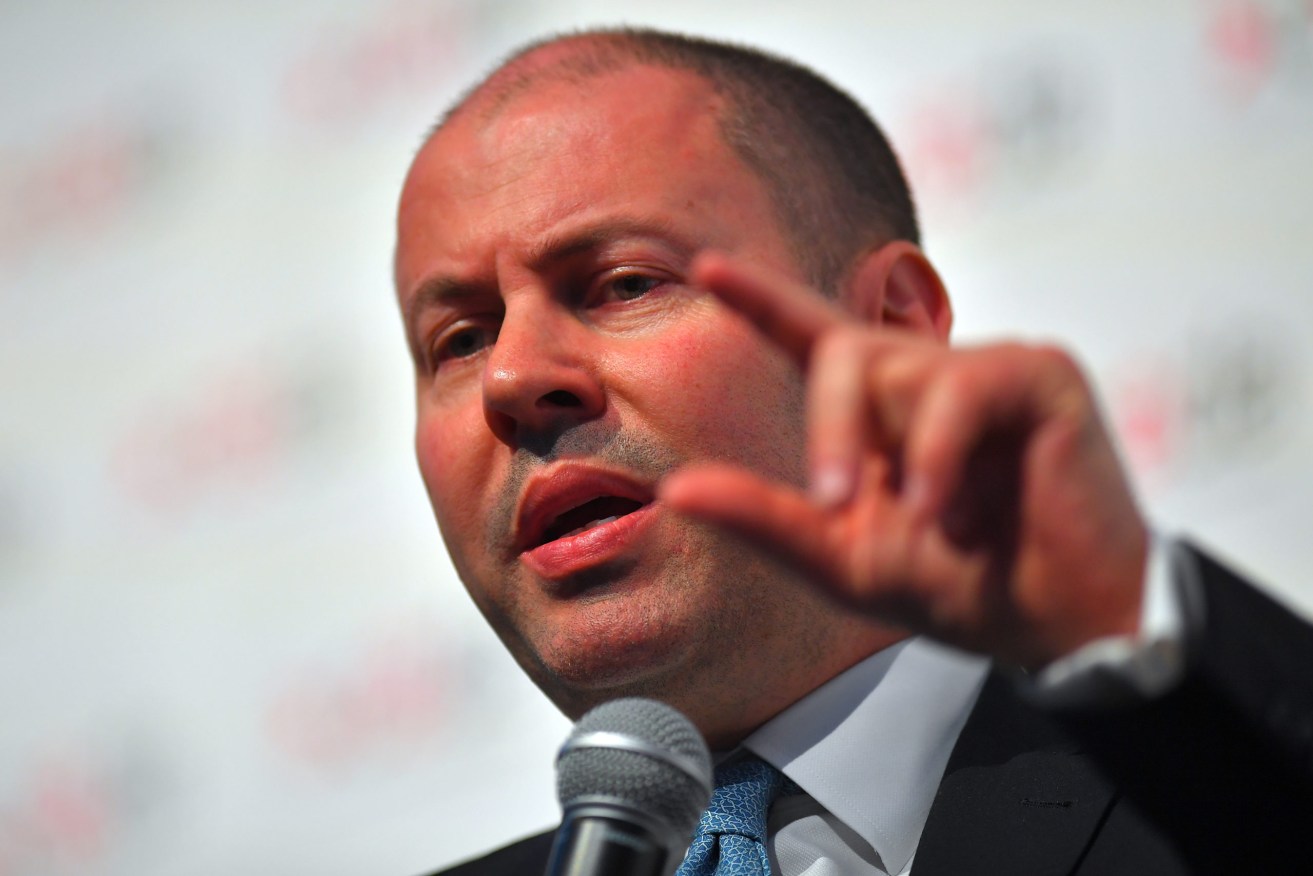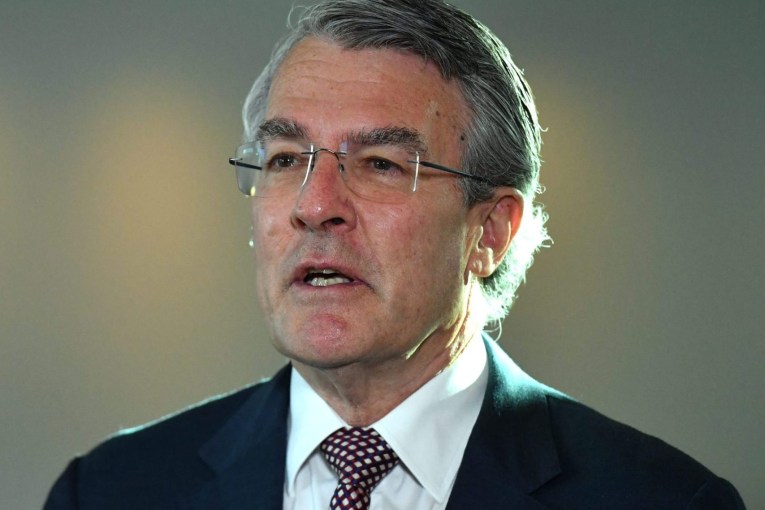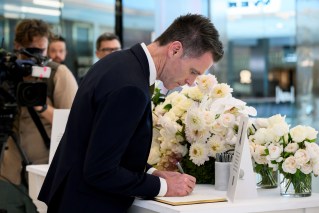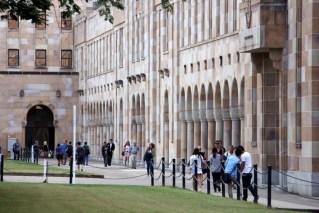Shares take quick plunge, but jobless figures not as bleak as first feared
Australia’s unemployment rate rose by 0.1 of a percentage point in March, with the data collected before widespread coronavirus restrictions that left thousands unemployed.

Federal Treasurer Josh Frydenberg (Photo: Steven Saphore/AAP PHOTOS)
The unemployment rate inched higher to 5.2 per cent following the Australian Bureau of Statistics survey of about 50,000 people in the first two weeks of March.
Economists say the March fall in employment could be the tip of the iceberg as restrictions on venues such as pubs, clubs, restaurants and cafes were not imposed until the second half of the month, meaning the April data will be worse.
Treasury has forecast the economic shock of the virus will cause Australia’s unemployment rate to hit 10 per cent in the June quarter, meaning 1.4 million people will be out of work.
Treasury said the rate could have tripled to 15 per cent if not for the government’s $130 billion JobKeeper wage subsidy scheme.
The government has pledged $320 billion in measures to help the economy overcome the virus, representing 16.4 per cent of gross domestic product.
Ahead of the release of the jobless figures, the S&P/ASX200 benchmark index was down 101.7 points, or 1.86 per cent, at 5365.0 points after 30 minutes of trade on Thursday,.
The bourse had fallen by 2.1 per cent in the first 15 minutes of trade.
The All Ordinaries index was down 102.8 points, or 1.86 per cent, to 5420.5.
Nearly all sectors were in the red, with the financials, miners, consumer discretionaries and property firms losing heavily.
The big banks were hit hard. Commonwealth Bank fell by 2.66 per cent to $60.42, Westpac dropped 3.59 per cent to $15.705, NAB shed 3.37 per cent to $16.08 and ANZ fell by 3.38 per cent to $16.28.
Macquarie Group dropped 2.1 per cent to $98.84 while Bendigo Bank, which has withdrawn its second-half outlook commentary, lost 3.39 per cent to $5.98.
Crown Casino shares fell by 2.06 per cent to $8.09 after the company stood down 11,500 of its employees because of the coronavirus restrictions affecting its casinos in Melbourne and Perth.
The jobless rate for March is tipped to rise from 5.1 per cent to 5.4 per cent in figures due to be released by the Australian Bureau of Statistics at 1130 AEST.
Economists say the figure could be the tip of the iceberg as widespread COVID-19 shutdowns and social restrictions were not implemented until the second half of the month, meaning the April data will be worse again.
Toll giant Transurban also fell at the open, losing 3.65 per cent to $12.41 after car trips on nearly all the company’s Australian roads fell in the three months to March 31.
Big miner BHP dropped 3.85 per cent to $30.22, Rio Tinto slumped by 1.82 per cent to $88.15 and Fortescue Metals shed 2.54 per cent to $11.11.
The energy sector was down by a collective 1.88 per cent on an overnight oil price slump.
Woodside Petroleum fell by 1.63 per cent to $20.875 after posting a more than 20 per cent fall in first-quarter sales revenue.
Biotech CSL was up 0.19 per cent to $324.75, while A2 Milk was up 2.27 per cent to $18.51 to keep consumer staples flat.
The major US indices plunged overnight as dismal economic data and first-quarter earnings reports sent investors scurrying.
The Australian dollar was buying 63.06 US cents at 1030 AEST, down from 63.54 US cents at the close of markets on Wednesday.
Treasurer Josh Frydenberg expects the jobless rate to rise to about 5.4 per cent, up from 5.1 per cent in February.
The figure was calculated in mid-March, meaning it will not reflect the full impact of mass business closures and job cuts.
Treasury has forecast Australia’s unemployment rate to rise to 10 per cent as a result of the pandemic.
More than 800,000 businesses have already applied for the JobKeeper wage subsidy program and hundreds of thousands of people have signed onto the JobSeeker payment.
Overnight, Frydenberg and his G20 counterparts agreed to continue coordinating financial and health responses to the virus.
They discussed the need to keep borders open to allow the free flow of medical equipment, as well as ensuring free trade continued beyond the pandemic to keep global supply chains strong.
“We do not want to see a reversion back to protectionism,” Frydenberg told ABC radio.
The Treasurer told his international colleagues the world could not be complacent on the economic front, just as countries could not afford to relax in the health fight against coronavirus.
The meeting of the finance ministers and central bankers from the world’s largest economies comes on the heels of the International Monetary Fund warning Australia – and the globe – is headed for a recession as deep as the Great Depression.
“The world will judge the G20 on our ability to ensure global economic and financial stability throughout this unprecedented crisis,” Frydenberg told the meeting.
Governments had to remain responsive, flexible and ready to do more and to make sure that finance was available to all countries.
“Now is not the time for complacency given how rapidly this situation has evolved and how far into uncharted territory this virus has taken us,” the Treasurer said.
“As we take actions to safeguard our economies, we must resist the temptation to take measures which constrain global supply chains and restrict trade, especially for vital medical supplies and other essential goods.
“Such commitments will give markets the investment certainty and confidence they need during these challenging times.”
He applauded the toolkit that the IMF, the World Bank and other multilateral organisations had assembled.
Frydenberg also expressed his pleasure that countries had been able to work collaboratively and in record time to coordinate the actions of central banks so as to stabilise markets and improve access to emergency financing.
The IMF forecast the Australian economy would shrink by 6.7 per cent this year then grow 6.1 per cent over 2021, ultimately leaving it smaller than it was at the end of 2019.
Unemployment was tipped to rise to an average of 7.6 per cent in 2020 and 8.9 per cent in 2021.
But Frydenberg said these figures didn’t take into account the full extent of Australia’s support package and its efforts to flatten the rate of coronavirus infections.
Frydenberg will follow up the G20 meeting with another with his counterparts involved in the IMF on Thursday night.
-AAP












